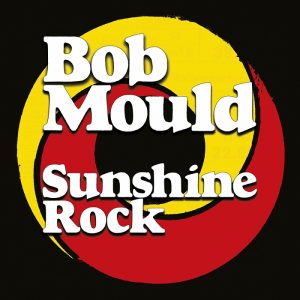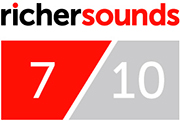
Sergione Infuso/Corbis via Getty Images
Former Hüsker Dü and Sugar frontman Bob Mould is back with his 13th solo studio album. After such a long and varied career, what will we get from the alt-rock pioneer this time?
By name as by nature, Sunshine Rock is the opening track, album name and of course, title track. Mould’s voice is immediately recognisable – as the voice of EVERY nineties to noughties USA punk/alt-rock band. But he did it first.
As the undeniably catchy track breathes immediate life into the album from the get-go, you can easily hear why Mould’s previous work has been cited as an influence by so many. From The Pixies to Nirvana, the man’s reach is vast.
As the opening track leads directly into What Do You Want Me To Do? there’s notes of Blink 182, clearly outing another band that has found inspiration from his Hüsker Dü days. With a pacy guitar and Mould somehow managing to switch between his signature baritone voice and a more nasal, higher pitched variant – it’s old school punk with no apologies.
As the opening trio of songs give way to Thirty Dozen Roses, the grunge elements from his days with Sugar take a firmer grip on the track. Although it’s not dropped pace once, making for a relentlessly unapologetic punk-rock album this far; the distortion on the guitars and the lovelorn lyrics speak of the slightly more angsty side of alt-rock.
There’s more of this with I Fought, later in the album. Sounding like early Queens Of The Stone Age, the fuzzy, lo-fi guitar power chords and dramatic vocal lines make for a less speed-driven track than what comes before. It’s not a bad thing to drop the speed however. The track feels and sounds as though it could rouse a stadium crowd as easily as a basement gig.
The album isn’t one long overdriven guitar-fest however. During his first outing as a solo artist, directly after Mould was outed in the media as a gay man, Mould not only embraced his sexuality publicly, but experimented with more dance and electronica.
Although his first album to incorporate this, Modulate met mixed to poor reviews and fan reactions, the electronica influences found in this album are far more polished. The Final Years is a welcome break from the aforementioned guitar-based tour de force. With keys and string notes throughout the track, it’s far softer than the previous tracks on the album and gives voice to a more restrained voice from Mould.

Sunshine Rock is the 13th solo album from former Hüsker Dü and Sugar frontman Bob Mould.
Retaining the guitar but taking the speed down a notch, and arguably the best track on the album, comes Sin King. As one of the few songs on the album that clocks in over three minutes, Mould has more room to weave in meaning to this track. The vocals and drums stay slow and strong throughout, with the guitar staying as an emotional fog around the track. Full of personal and political metaphor, it’s truly a great song.
As though a follow on to the previous track, Lost Faith feels even more melancholic. Loaded with despair, with wailed lyrics like ‘watch your hopes and dreams disappear’. The track is still full of notes personal to Mould such as him letting people down as well as the more veiled political thoughts.
After a brief lull for Camp Sunshine, we’re back into a power riff laden Send Me A Postcard. Full of distortion and gratuitous mini-solos it feels like a retrospective, effervescent look back his second band, Sugar. There’s no huge message or meaning here, but it’s a whole lot of fun!
Ultimately that’s what the album boils down to. It’s hugely positive, which is a great thing. Considering the trials and tribulations that Mould has faced in the last decade, it’s good he’s been able to find such a positive place to release this album from. Obviously, we benefit from this too.

Author: Steve, Chiswick store





